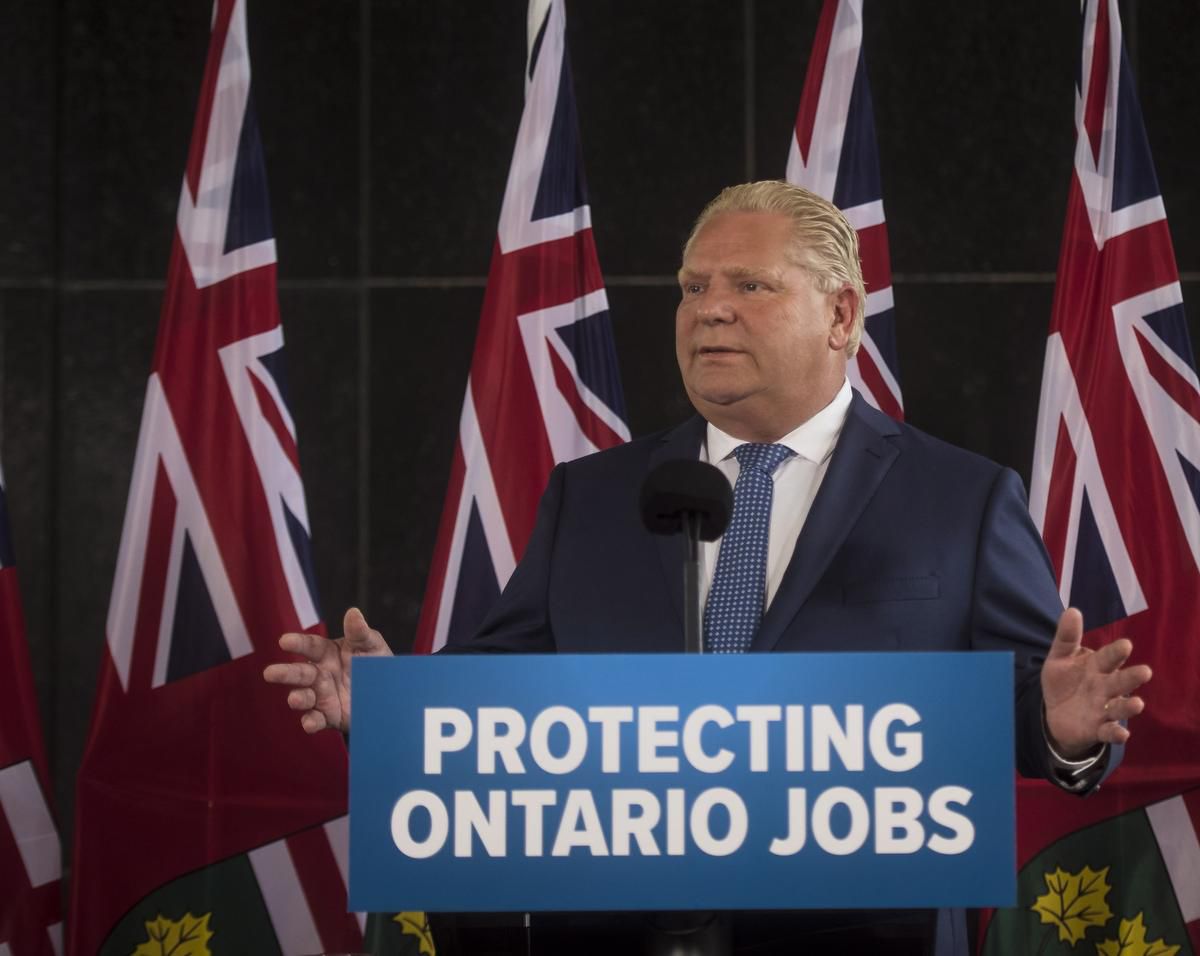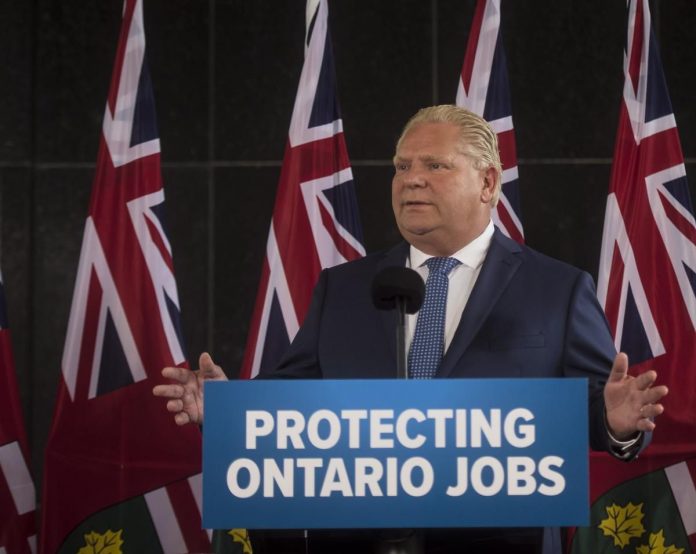[ad_1]
MONTREAL—Ontario’s partners in a North American emissions-trading market are hoping to convince Premier-elect Doug Ford to scrap an election pledge to pull out of the program.
Quebec Environment Minister Isabelle Melançon said she is anxiously awaiting the swearing-in of Ontario’s Progressive Conservative cabinet so that she can take up the defence of the trading scheme through which companies that pollute beyond an ever-decreasing threshold can buy credits, the proceeds of which go toward emissions-reduction programs.

“What I want to do is underline the benefits of the carbon market for Quebec,” Melançon said in an interview.
“There are some who would try to play off the economy against the environment. I can tell you that in Quebec, it’s not at all the case. We have full employment, the economy is going better than ever and our credit rating is even better than it is in Ontario.”
Ontario companies and organizations began fully participating in the cap-and-trade system, along with Quebec and California, in January of this year. In total, the province has raised nearly $2.9-billion from the sale of credits, according to a report from May 2018.
The money goes toward the operation of the Green Ontario Fund to pay for climate-friendly programs, rebates for home upgrades and clean-technology pilot projects.
But the PC party has criticized the program because it results in higher costs to consumers for things such as natural gas and gasoline. Referring to the Green Ontario Fund, the party vowed in its recent election platform to end the cap-and-trade “slush fund.”
Instead, Ford’s election platform has promised to create an “emissions-reduction fund” that would invest in new technologies within the province to cut greenhouse gases.
A party spokesperson, Jeff Silverstein, said, in an email, that there are no plans to change course now that the campaign is over.
“Premier-designate Doug Ford and his transition team have spent the last number of days meeting with experts, and we look forward to following through on every single commitment we made to the people of Ontario, including scrapping the carbon tax and putting more money back into people’s pockets.”
South of the border, a spokesperson for the California Air Resources Board offered a more guarded reaction to the election of Ford’s Tories. Officials in the state were not speaking publicly about the implications of an Ontario pullout.
“All I can tell you is that we’ve had a mutually beneficial relationship with Ontario regarding climate issues and look forward to continuing that relationship with the new government,” David Clegern said in an email.
Annie Chaloux, an assistant professor of politics at the Université de Sherbrooke, said the vow to pull out of the cap-and-trade program sends a message that Ontario is ready to abandon its provincial and international partners.
She likened Ford’s stance on cap-and-trade to United States President Donald Trump approach to international partnerships such as the G7 or the 2016 Paris Accord on climate change, which was signed by members of the United Nations Convention.
“It’s sort of the same idea that we can’t trust them, despite the fact that it’s not in Ontario’s traditions to make such a rash movement,” Chaloux said. “Maybe Doug Ford will see that there’s has been an economic benefit from Ontario’s participation.”
Experts say that a Ford government must carefully consider the implications of scrapping its cap-and-trade program. At the federal level, provinces which do not have a carbon tax, such as British Columbia, Manitoba and Alberta, or are not participating in a cap-and-trade system like Quebec, Ontario and Nova Scotia, will be subject to a national carbon tax.
Slated to start this year and charge polluters at the rate of $10-per-tonne of greenhouse gas emissions beyond a certain threshold, the tax will rise to $50-a-tonne by 2022.
Chaloux said there is an expectation that the price to buy offset credits on the carbon market will be lower than $50-a-tonne four years from now.
She said submitting to a national carbon tax would also deprive Ontario businesses that are subject to the emissions thresholds of choice.
“The beauty of a carbon market is that it leaves room for companies to choose how they are going to do things and at what price,” she said. “A company that reduces its emissions can even go out and make money for having gone below the targets by selling credits to other companies.”
While an Ontario pull out would carry little in the way of concrete negative impacts for the other two partners in the carbon market — Quebec and California were in it alone before Ontario signed on — Quebec’s Melançon said it would be a setback for the environment.
“The greenhouse gases that we reduce don’t just benefit Quebec. It’s good for the entire planet,” she said. “So the more we work to reduce emissions, the better the planet will do. That’s why we want Ontario to stay with us in this fight against climate change.
TOP STORIES, DELIVERED TO YOUR INBOX.
[ad_2]








